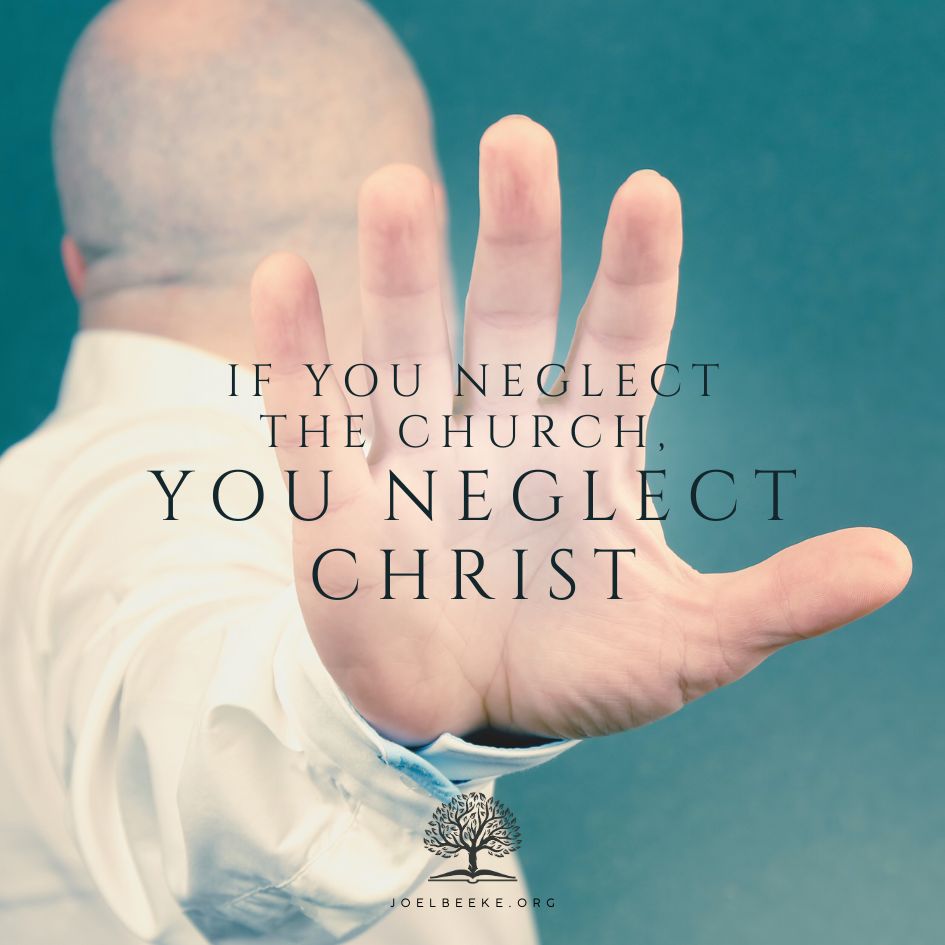A weary and discouraged pastor who sees the title of this chapter might be tempted to stop reading, thinking, “I was zealous once. But now I’m ill-tempered and just plain tired! Zeal means trouble. Zeal causes pastors to be burned out, cussed out, or thrown out by the sheep or goats that pasture with them.”
Puritan pastors were familiar with burn-out and other challenges that pastors face today. Yet they cherished Word-based zeal and sought to fan it into flame. William Fenner (1600–1640) wrote, “Zeal is the fire of the soul…. Every man and woman in the world is set on fire of hell or of heaven…. Zeal is the running of the soul. If thou be not zealous for God, thou runnest away after the things of this world.”1William Fenner, A Treatise of the Affections (London: A. M. for J. Rothwell, 1650), 132–33.
The Puritans not only wrote about zeal, but they also walked in it. John Flavel was a zealous pastor. After he was ejected from the ministry in the Church of England in 1662, he continued to meet in secret with his parishioners. He preached in the woods, in the dark night, and even on island rocks near the shore before the tide submerged his makeshift pulpit. On one occasion he dressed in women’s clothing to reach a secret place for worship. On another occasion, Flavel had to ditch his horse in the sea before swimming through rocky shoals to reach a safe port.
When was the last time a mob came to your house and burned you in effigy? Flavel experienced this and more. What kept him going? What kept him zealous in ministry even when it cost him so much? The simple answer is that it was the same passion that burned in the hearts of most of the Puritans—a desire to glorify God. Solomon Stoddard (1643–1729), grandfather of Jonathan Edwards, summarized the heart of a zealous pastor this way:
The Spirit gives them a zeal for God’s glory and the salvation of souls. When the Spirit of God is upon them, they will be much concerned for God’s glory. So it was with Elijah in 1 Kings 19:10…. They will not be indifferent whether God’s kingdom flourishes or not; their hearts will not be upon the world, but their hearts will be engaged for God’s honor, and for the salvation of men’s souls.2Solomon Stoddard, “The Importance of Gospel Preachers,” in The Puritan Pulpit: Solomon Stoddard (Orlando: Soli Deo Gloria, 2005), 208.
At the center of zeal for the Lord is the Spirit who rules and energizes the heart. Samuel Ward (1577–1640) wrote, “In plain English, zeal is nothing but heat…. It is a spiritual heat wrought in the heart of man by the Holy Ghost, improving the good affections of love, joy, hope, etc., for the best service and furtherance of God’s glory.”3Samuel Ward, Sermons and Treatises (1636; repr., Edinburgh: Banner of Truth, 1996), 72. Oliver Bowles (d. 1674) said zeal “is a holy ardor kindled by the Holy Spirit of God in the affections, improving a man to the utmost for God’s glory, and the church’s good.”4Oliver Bowles, Zeal for God’s House Quickened (London: Richard Bishop for Samuel Gellibrand, 1643), 5.
The prerequisite for zeal in ministry is a heart that is in love with and on fire for the Lord Jesus. At issue for every Christian, and certainly for every pastor, is Christ’s question to Peter, “Lovest thou me?” (John 21:15–17). Biblical zeal is not a violent outburst of pride but a steady flame of love for God that radiates warmth toward others. Jonathan Edwards said, “Christian zeal [is] indeed a flame, but a sweet one; or rather it is the heat and fervor of a sweet flame. For the flame of which it is the heat, is no other than that of divine love.”5Jonathan Edwards, The Works of Jonathan Edwards, Volume 2, Religious Affections, ed. John E. Smith (New Haven: Yale University Press, 1959), 352.
How Does the Spirit Create Zeal in Pastors?
A Puritan pastor would answer this question by first asking, “Are you a saved, Spirit-led believer?” Richard Baxter (1615–1691) pulled no punches in The Reformed Pastor. He asked:
Can any reasonable man imagine, that God should save men for offering salvation to others while they refused it themselves; and for telling others truths which they themselves neglected and abused? Many a tailor goes in rags that maketh costly clothes for others; and many a cook scarcely satisfies his hunger, when he hath dressed for others the most costly dishes. Believe it, brethren, God never saved any man for being a preacher, nor because he was an able preacher; but because he was a justified, sanctified man, and consequently faithful in his Master’s work.6Richard Baxter, The Reformed Pastor (New York: American Tract Society, 1829), 90.
Baxter experienced firsthand what a defective ministry was when he was asked to assist the parish minister at Kidderminster as a guest lecturer. Baxter found the man to be “utterly insufficient for ministry, presented by a papist, unlearned, but preached once a quarter which was so weakly, as exposed him to laughter…[who] frequented alehouses and had sometimes been drunk.”7Richard Baxter, The Autobiography of Richard Baxter (Mobile, Ala.: R. E. Pub., n.d.), 24. Baxter went on to say that the man’s wife would often walk out of church because she couldn’t stand to hear him preach.
The Puritans had little sympathy for pastors who were mere professionals offering a gospel to which they were strangers. Thomas Watson (c. 1620–1686) said about such ministers:
How sad it is for a minister to preach that to others which he never felt in his own soul; to exhort others to holiness and himself a stranger to it. Oh, that this were not too often so. How many blow the Lord’s trumpet with foul breath!… The life of a minister should be a walking Bible…. They who live in contradiction to what they preach disgrace this excellent calling. They turn their books into cups. And though they are angels by office, yet they are devils in their lives.8Thomas Watson, The Godly Man’s Picture (Edinburgh: Banner of Truth, 1992), 155.
Once the issue of salvation was settled, a Puritan spiritual diagnostician would proceed to the next question: “Is the old man of flesh dying within you?” Many Puritans had diagnostic tools for themselves and other pastors to determine whether the governing principle or motivation for their ministry was based upon true zeal for the Lord. In their writings we find at least seven tests for ministers to determine if they were “dying to self.”
- Am I industrious and busy in the work of the Lord? Thomas Brooks (1608–1680) said, “The zealous soul is continually saying to himself, ‘What shall I render to the Lord?’9Thomas Brooks, “The Unsearchable Riches of Christ,” in The Works of Thomas Brooks (1861–1867; repr., Edinburgh: Banner of Truth, 2001), 3:58–59. Cf. Ps. 116:12. Thomas Watson wrote, The minister must not be idle. Sloth is as inexcusable as sleeping in a sentry. John the Baptist was a “voice crying” (Matt. 3:3). A dumb minister is of no more use than a dead physician. A man of God must work in the Lord’s vineyard. It was Augustine’s wish that Christ might find him at his coming either praying or preaching.10Watson, The Godly Man’s Picture, 154.
- Is there a distinct difference in the way I live in the world as a Christian? Do members of my congregation see the difference? William Perkins (1558–1602) offered this sad commentary on the spiritual landscape of his time: In many parts of our land there is by God’s blessing much teaching, yet there is little reformation in the lives of most…. What is the cause? It cannot lie in the gospel; nor in our doctrine, nor in the teaching of it. One principal cause is that many ministers come into God’s presence unsanctified, and in their sins, little concerned about how loosely they live before their people…. If ministers are to see any fruit from their ministry, they must first sanctify themselves and cleanse their hearts by repentance before they presume to stand up to rebuke sin in others.11William Perkins, The Art of Prophesying (Edinburgh: Banner of Truth, 2002), 150–51.
- Am I truly grieved when church members voice an unhealthy dependence upon my leadership or when they shower me with praise and excessive honor? Thomas Foxcroft (1697–1769) raised this issue in his inaugural sermon at First Congregational Church in Boston: Dependence upon ministers is a derogation from the Lord of glory, whose appropriate and sole prerogative is to give strength unto His people…. Unto Christ is due the glory of efficiency, but to them the honor of instrumentality.12Thomas Foxcroft, The Gospel Ministry (Grand Rapids: Soli Deo Gloria, 2008), 74.
- Do I do good works or serve even in sacrificial ways so that people will sing my praises? The modern term for this problem is having a hidden agenda. Thomas Shepard (1605–1649) confessed this sin of the heart in a journal entry, saying: On Sabbath when I came home I saw the hypocrisy of my heart that in my ministry I sought to comfort others and quicken others that the glory might reflect on me as well as on God. Here upon I considered how ill the Lord took this and how adverse he was from this self-seeking, by the sight of which I labored to be averse from it myself and purposed to carry it in my mind as one strong means to help against it for time to come.13Thomas Shepard, The Works of Thomas Shepard (New York: AMS Press, 1967), 3:411. Stoddard issued a similar warning: When you are zealous, there is no occasion to say, “Behold his zeal for the Lord.” A man may become a zealous man; he may have a spirit to promote ordinances; he may go to any expense rather than live without them. He may have a zeal against the pride and drunkenness of the land. He may hope that men take notice of it, and call it zeal for the Lord (2 Kings 10:16). But there is no occasion for God to say so. God takes notice that there is another spirit in him…. Some men take great pains in preaching, praying, and reading. Some men say that they weary themselves for God. But God says, “There is no love for me in their services.” God slights the service and says, “That man takes great pains so that men may observe and commend him.”14Solomon Stoddard, “Natural Men Are Under the Government of Self-Love,” in Puritan Pulpit, 66. Stoddard’s comments are especially poignant because of what he as pastor of First Church of Northampton, Massachusetts, had experienced. Before Stoddard was ordained—or even converted—his wife and some women from town sensed Stoddard’s true spiritual condition and began praying for him. Stoddard was finally brought to a personal experience of Christ’s grace while he was administering the Lord’s Supper.15Ralph J. Coffman, Solomon Stoddard (Boston: Twayne Pub., 1978), 60.
- Is my aim in ministry to promote my own reputation or to enrich myself financially? Promoting self through ministry is the sin of crass professionalism. Pastors guilty of this are only hirelings, not true shepherds. Richard Sibbes (1577–1635) wrote, And especially ministers, their aim it should not be for the fleece, it should not be to gain respect, or any advantage to themselves to bestow some spiritual good thing. As the apostles saith, “To bestow some good things upon you” (Rom. 1:11), some grace, as he calls it. This should be their aim, not to receive good from them, so much as to do them good. Ministers are fathers, they should have that tender disposition.16Richard Sibbes, “Commentary on II Corinthians,” in The Works of Richard Sibbes (Edinburgh: James Nichol, 1860), 330.
- Am I envious of the success of other pastors and their ministries? In a funeral sermon for his friend and colleague Richard Fairclough (1621–1682), John Howe (1630–1705) issued a warning to all preachers of the gospel when contemplating the success of their colleagues: How horrid would it be, should we behold with envy what we are to suppose [is] done out of love and good-will! They are great admirers of themselves, and lovers of some interest of their own more than his, that cannot endure to see his work done by other hands than theirs; or that have nothing of that disposition in them which those words express, “Let him increase, and me decrease.”17John Howe, “A Funeral Sermon for Mr. Richard Fairclough,” in The Works of John Howe (Ligonier, Pa.: Soli Deo Gloria, 1990), 3:394.
- Do I look beyond the felt needs of people and the day-to-day activities of ministry toward a higher purpose? When writing about the Christian’s labor and reward, William Gurnall (1616–1679) argued that pastors should always be mindful of their chief end in life: If I aim at the comfort and relief of a poor man’s necessity in my alms (which I may and ought to do), yet if this is the highest I look, and my eye does not pass beyond this to the glory of God, it becomes unacceptable. A man may lose the prize by shooting short as well as wide of the mark. Now how hard is it to keep our eye fixed on this ultimate end? Truly, even as hard as to keep our eye fixed on a single object through an optic glass, held by trembling hand.18William Gurnall, The Christian’s Labor and Reward (Morgan, Pa.: Soli Deo Gloria, 2004), 11. Gurnall’s observation is painfully accurate. Given our weakness and infirmity as mere men, it is difficult for us to keep our eye fixed on the ultimate purpose of our lives and ministries: the glory of God. We keep our eyes fixed on the glory of God only with the aid of “an optic glass, held by trembling hands.” Think of the chaotic result of a novice videographer who can’t keep his camera steady! The next two chapters will show us how the Holy Spirit clarified the vision and steadied the grip of the Puritans.
Ask the Spirit for the Fire of Love
As ministers of the gospel, we have a high calling to fulfill and only a short time to do it. We cannot afford to waste precious time in idleness or unproductive activity. The glory of God and the welfare of immortal souls hang in the balance every hour. John Reynolds (1667–1727) wrote, “O what a world of good may we all do, if we had the true zeal of God! How many occasions and opportunities are put into our hands every day (in what condition and circumstances soever we are) which, if we were acted by this principle, would render us great benefactors to mankind, by discouraging vice and impiety, and promoting virtue and goodness in the world?” He concluded, “Let us ardently love the Lord Jesus, and the affairs of His redemption and glory! Let us be serious and diligent in all the offices of a truly sacred zeal!19John Reynolds, Zeal a Virtue: or, A Discourse Concerning Sacred Zeal (London: John Clark, 1716), 184–85.
Before reading any further, we recommend that you pause for prayer. John Preston (1587–1628) wrote, “The love of God is peculiarly the work of the Holy Ghost…. Therefore the way to get it is earnestly to pray…. We are no more able to love the Lord than cold water is able to heat itself…so the Holy Ghost must breed that fire of love in us, it must be kindled from heaven, or else we shall never have it.”20John Preston, The Breastplate of Faith and Love, 2 vols. in one (1634; facsimile repr., Edinburgh: Banner of Truth, 1979), 2:50.
Stop right where you are, and call upon the Lord to inflame your heart with love for Him and zeal for His glory. Christ assures us that the Father will give the Holy Spirit to His children if they ask (Luke 11:13). So in the name of the Son (John 16:23, 24), ask the Father to fill you with joy and peace in believing so that you may bound in hope, through the power of the Holy Ghost (Rom. 15:13); specifically, to shed His love abroad in your heart through the Spirit (Rom. 5:5), to strengthen you by His Spirit in the inner man (Eph. 3:16), and to make your life and ministry bear much fruit, that He may be glorified in you (John 15:8).
Excerpt From
Encouragement for Today’s Pastors
Joel R. Beeke and Terry Slachter








